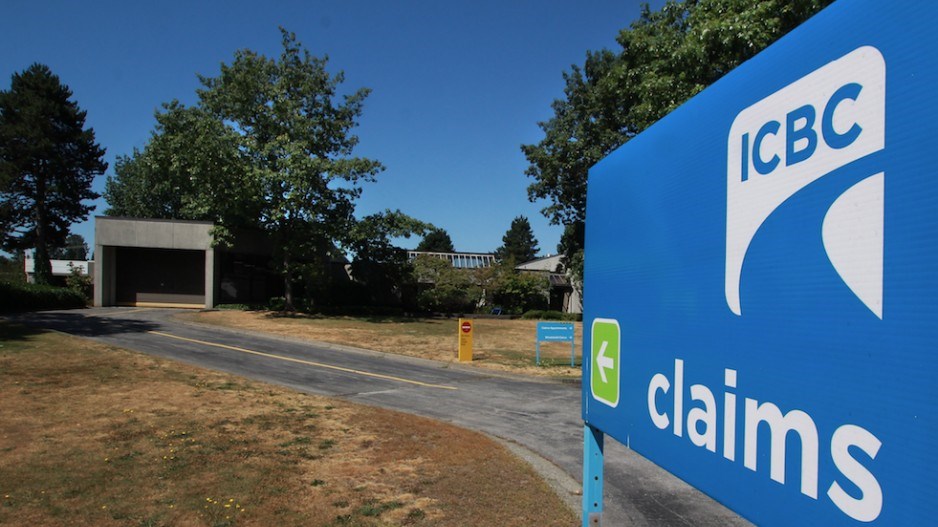British Columbia’s public auto insurance provider will pass on savings to customers in the form of a roughly $190 rebate after fewer claims during the COVID-19 pandemic left ICBC with hundreds of millions of dollars in surplus.
Speaking from the legislature in Victoria Tuesday, B.C. Public Safety Minister Mike Farnworth said the rebate will go to roughly 2.86 million drivers who held a policy from April 1 to Sept. 30, 2020.
“If you had full coverage during that time, you’ll get the full rebate,” said Farnworth.
In what Premier John Horgan described as “the largest rebate in all of Canada,” a total of $600 million will be handed out, an amount based on the underwritten savings “directly linked to the way people were driving during the pandemic,” confirmed ICBC CEO Nicolas Jimenez.
More car insurance savings coming
The rebate, promised by the NDP government during last year’s fall election campaign, is part of a major ICBC overhaul of its insurance coverage, which will alter third-party liability coverage and save customers an average of 20% or $400 a year, according to Farnworth.
Just how much motorists will save in the future can be calculated through an improved online tool, revealed by Farnworth last week as part of a new model to deliver auto insurance coming into effect on May 1.
Collisions down, savings up due to pandemic
The move comes as thousands of British Columbians continue to work from home in line with workplace policies and public health orders meant to stem the spread of the coronavirus across the province. Between mid-March and May last year, claims dropped by 46%, or roughly 7,200 per week, leading to about $158 million in savings, according to a report released by ICBC in May.
At the time, the public auto insurer reported that 103,700 had cancelled their insurance policies. As a result, last week, Jimenez said the insurer had reached a surplus of $410 million in the second quarter — from April to June — a major turnaround from a $2-billion loss between the start of 2018 to the end of 2019.
On Tuesday, ICBC’s CEO did not directly answer questions over the corporation's net surplus since then, but said claims remained 30% lower in the third quarter.
“It’s all very clear that we’re heading in the right direction,” said Jimenez of ICBC’s financial situation.
ICBC faces pressure to share savings
For months, ICBC has faced mounting pressure to pass its savings down to motorists, something insurance providers in other jurisdictions have already done.
In December, Canadian Taxpayers Federation director Kris Sims called on the province to fall in line with other provinces, which had already offered hundreds of dollars in rebates to customers.
“B.C. drivers should have gotten ICBC rebates in the spring when drivers in other provinces got hundreds of dollars back,” said Sims in a written statement Dec. 29, adding that the insurer was “screwing drivers out of their own money during the lockdowns.”
On Tuesday, Sims said the group was happy to see the rebates come through but that they were "too little too late," and that the B.C. government should move to "take the next step now and release drivers from this government forced monopoly."
The right-of-centre advocacy group is not the only one who has criticized the state of ICBC, with attacks in recent years coming from both sides of the political spectrum.
Attorney General David Eby called ICBC's financial situation a "dumpster fire" after the NDP took power in 2017, with Tuesday’s announcement the latest government measure introduced to douse the flames. Delaying rebates until March, said Horgan, was to ensure ICBC's long-term fiscal health.
But MLA Mike Morris, BC Liberal critic for Public Safety and Solicitor General, said the government's delayed response was "totally unacceptable" and "should have happened months ago."
"It's confusing why it will take another six weeks to deliver," added Morris in a press release following the announcement.
How do I get my money back?
The one-time ICBC rebate is scheduled to be dispersed to British Columbian drivers in the form of a cheque starting at the beginning of March, and rolling out over a period of “a few weeks,” said Horgan Tuesday.
Farnworth said 80% of ICBC customers will receive between $50 and $300 back, though it could come in as low as $25 and as high as $400. Drivers with multiple insurance plans between April 1 and Sept. 31 will receive rebates based on each plan, confirmed Farnworth.
Drivers can also calculate how much they will save past May 1 under the new insurance paradigm by visiting ICBC’s online calculator at enhancedcare.icbc.com/.
B.C. COVID rebate concerns
Roughly six weeks after many British Columbians were eligible for up to a $1,000 rebate, Horgan confirmed 1.8 million have received their cheques. Another 300,000, he said, are still waiting and government staff are going “case-by-case” to fix errors, either made by the applicants or by a staff member transposing applications.
“There’s an error somewhere and we’re working to get through those,” said Horgan. “I ask for patience.”
The ICBC rebate cheques, he added, would not face the same hiccups as the COVID-19 benefit and would be dispersed “seamlessly” as the insurance corporation has detailed records on precisely how much people pay insurance, how long they’ve had a policy and where they live.




